News & Events
How to inject ‘equitable care’ into online learning
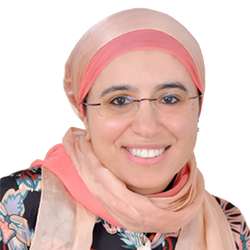
Keynote speaker Prof Maha Bali (American University, Cairo, Egypt)
The Covid-19 pandemic has thrown huge challenges in the path of universities, but they owe it to their lecturers and students not to emphasise rigour and efficiency at the expense of care and community building.
“During the trauma of this pandemic, building community was one of the most important things we have had to focus on,” said Professor Maha Bali of the American University in Cairo, Egypt, in a keynote address during Unisa’s Open and Distance eLearning Virtual Conference.
In her address on 5 August 2021, she focused on the importance of building “equitable communities of care”, where the appropriate policies and systems on caring for students are in place and are then carried through with practical application by educators and support staff across the institution.
It is not sufficient, Bali said, to have the right policies but then to apply them selectively.
“If you have equity without care, it can become tokenism or diversity theatre or lip service. If you have care without equity, then you either have affective labour that a few people are doing or it’s selective—a band aid.”
Universities and educators have access to many community-building resources but, when drawing on these, should constantly be asking themselves who has access and whose culture dominates, on the one hand, and who could potentially lack access or be excluded or marginalised.
For example, an online activity known as ‘Story of your name’, in which students share the history of their names for the purposes of online community building, has proven very popular. However, this activity could be problematic for certain students, such as those whose names had changed for reasons of personal safety, such as transgender people, or students who did not know the history of their names.
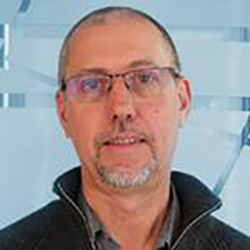
Session chair Dr Tony Mays (Education Specialist: Open Schooling, Commonwealth of Learning, Canada)
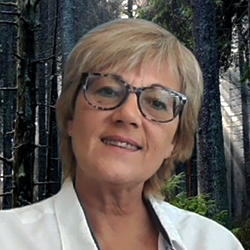
Dr Karin Wolff (University of Stellenbosch)
“It is always important to give people an out so they can share what they feel comfortable with and not share what makes them feel uncomfortable,” she said, referring to another popular online activity, ‘Show a tour of where you are’.
While some students would not mind allowing others a glimpse into their homes through an online tour, others could take exception or be embarrassed. Educators should therefore always offer participating students other options, such as to show a picture of their favourite place rather than their actual home.
Educators should make a point of ensuring that activities are culturally sensitive and not offensive to anyone, Bali said. She used the example of an activity known as ‘What animal are you?’, which could cause offence in some African countries and could therefore be changed to something like ‘What car are you?’.
Other online community-building activities that educators could try are PowerPoint karaoke and impulse storytelling, among others. “But also think about who you might be excluding by some of these choices,” she noted.
Bali spoke about the importance of enabling students to participate in the co-designing of courses by, for example, posting comments, suggestions, and questions about the syllabus. She also recommended that educators—especially those with very large classes—encourage students to work with and support each other.
Care for educators should not be overlooked, she was quick to add. “It is important to care for teachers because when they are burnt out, they won’t have energy for students.”
Conversations on care in education
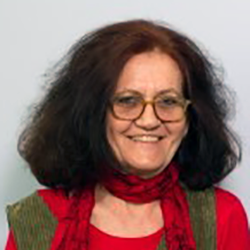
Prof Laura Czerniewicz (University of Cape Town)
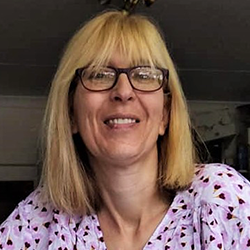
Prof Karen Ferreira-Meyers (University of Eswatini)
The conversation on care in the education space continued through a panel discussion, “The digital divide revisited in times of crises”. Session chair Dr Tony Mays, Education Specialist: Open Schooling, Commonwealth of Learning, Canada, summed up the current situation as building the aircraft while the plane is flying.
Panel member Dr Karin Wolff from the University of Stellenbosch said the digital divide was growing and it was not just about access to devices and bandwidth. Even staff were feeling overwhelmed by technology at present. Postgraduate students seemed best off dealing with the level of information literacy and skills required but many undergraduates are very much out in the cold.
Professor Laura Czerniewicz from the University of Cape Town agreed, adding that everything has become “datafied”, and digital and data literacies are becoming more complex.
The issue of lack of access was stressed by Professor Karen Ferreira-Meyers from the University of Eswatini, who quoted Afro Barometer figures highlighting the problem. Just 43% of people on the African continent have a basic cell phone, let alone a more sophisticated device, and 82% lack internet access.
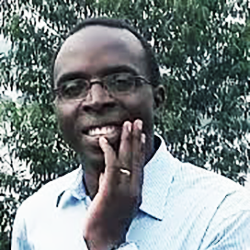
Prof Evode Mukama (University of Rwanda)
This problem was clearly illustrated in Rwanda. While the Rwandan government was quick to institute various alternative forms of learning, there was little uptake beyond the cities, said Professor Evode Mukama from the University of Rwanda.
He said the education department teamed up with various partners, including aid agencies and telecommunication companies, to transmit lessons over the radio and on line. However, it was later established that many parents were not even aware of these initiatives.
Czerniewicz said she appreciated the flexibility adopted by universities and departments and hoped this would continue. However, more research was needed on the way forward as lecturers were exhausted and many on the point of burnout.
The panel agreed that a more organic approach to planning was needed going forward and all voices needed to be heard.
To borrow from Dr Tony Mays’ aircraft analogy: the flight will still be bumpy for some time to come, but the aircraft is slowly coming together, with care.
*By the Directorate of Research Support
Publish date: 2021-08-24 00:00:00.0

